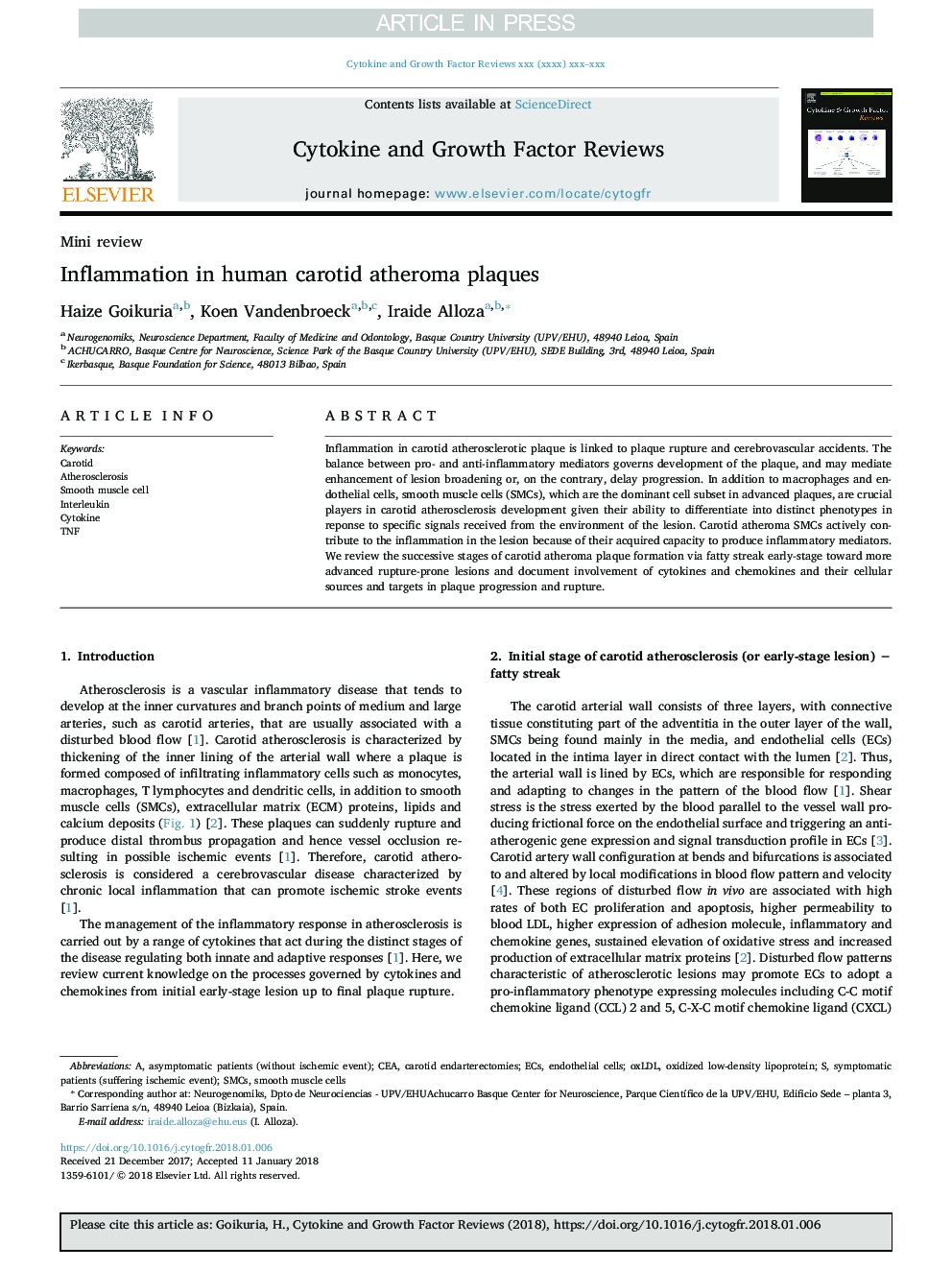| Article ID | Journal | Published Year | Pages | File Type |
|---|---|---|---|---|
| 8466316 | Cytokine & Growth Factor Reviews | 2018 | 9 Pages |
Abstract
Inflammation in carotid atherosclerotic plaque is linked to plaque rupture and cerebrovascular accidents. The balance between pro- and anti-inflammatory mediators governs development of the plaque, and may mediate enhancement of lesion broadening or, on the contrary, delay progression. In addition to macrophages and endothelial cells, smooth muscle cells (SMCs), which are the dominant cell subset in advanced plaques, are crucial players in carotid atherosclerosis development given their ability to differentiate into distinct phenotypes in reponse to specific signals received from the environment of the lesion. Carotid atheroma SMCs actively contribute to the inflammation in the lesion because of their acquired capacity to produce inflammatory mediators. We review the successive stages of carotid atheroma plaque formation via fatty streak early-stage toward more advanced rupture-prone lesions and document involvement of cytokines and chemokines and their cellular sources and targets in plaque progression and rupture.
Keywords
Related Topics
Life Sciences
Biochemistry, Genetics and Molecular Biology
Cell Biology
Authors
Haize Goikuria, Koen Vandenbroeck, Iraide Alloza,
